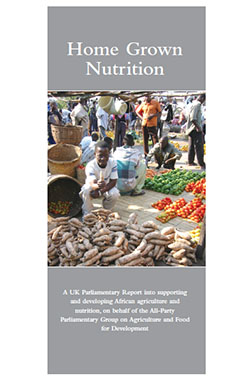
The University of Greenwich's Natural Resources Institute has received a grant from the Bill & Melinda Gates Foundation to support research to detect damaging viruses, which can reduce the yield of valuable yam crops for smallholder farming communities in West Africa and other parts of the developing world.
Greenwich researchers aim to develop a cheap and reliable testing system, which can be used to select virus-free yam tubers for planting by smallholder farmers.
The aim is to improve food security and household incomes of some of the world's poorest farmers.
The three year ~$1.5m project is being led by Dr Susan Seal, Head of the Biodiversity and Molecular Biology Research Group at the university's Natural Resources Institute.
She says: "Yam is a staple crop for millions of people in many tropical countries. Each season, yams are usually grown from the previous year's tubers, leading to a build-up of virus-borne diseases which can result in reduced harvests."
"The only effective method of control has been to use virus-free yam tubers for planting, but these are both scarce and expensive, limiting both the production and productivity of this important crop."
"Now, we aim to produce sensitive, cost-effective devices which can give clear results in minutes – just as a pregnancy test kit does."
The Natural Resources Institute (NRI) works to support food security, sustainable development and poverty reduction in developing countries. It has a special focus on, and expertise in, development in Africa. Other large projects with the Bill and Melinda Gates Foundation include research to tackle agricultural pests such as whitefly, and economic development work with producers of another important staple crop, cassava.

